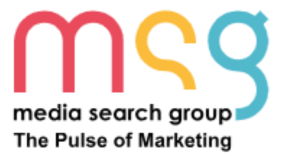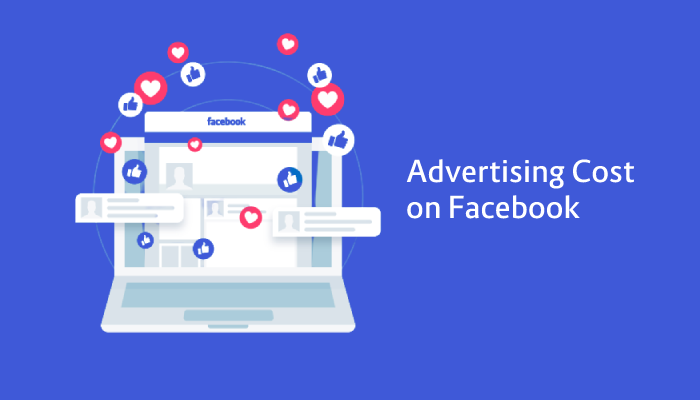Facebook Advertising Cost in 2021: A Quick Analysis
With around 7 million active advertisers, Facebook has become an integral part of online advertising for businesses across the globe. It is the largest and most popular social media platform globally with around 2.5 billion active users monthly. Not only is this, but the advertising cost on Facebook also manageable for almost every business, regardless of their size and budget.
So, if you are planning to promote your company, product, or services on Facebook, you probably be thinking about how much it costs to advertise your business on Facebook. Facebook advertising costs vary from business to business due to several factors like industry type, target market, marketing goal, ad type, ad placement, and more. When you are creating a Facebook ad campaign for your company, it is important to keep these factors in mind for a better ROI from your marketing efforts.
Facebook advertising works on a bidding model like PPC (pay-per-click) campaigns on Google. Advertisers can select a bidding model – Cost-per-click (CPC), Cost-per-thousand-impressions (CPM), Cost-per-like (CPL), and Cost-per-download (CPA) – while creating an ad campaign. It depends on how they want their audience to engage with ads and what marketing goals they have. So, the question here is how the Facebook ad auction works.
Facebook Ad Auction
Before getting into the factors that influence Facebook advertising costs, let’s understand the Facebook ad auction and how it works. It helps advertisers to optimize their ad costs to achieve greater returns. Here’s the step-by-step process of how the Facebook ad auction works:
- Log into your Facebook Ad Manager account to create a campaign
- Choose your daily budget (how much do you want to spend daily on ads)
- Select what action you will pay for, like clicks, views, impressions, likes, or download
- Build your audience using age group, location, gender, interest, and device targeting
- Add creatives like images and videos in your ad copy
- Now you can approve and launch your ad
After all these steps, the Facebook ad auction happens when there is a chance to show ads. The following steps do happen during the process:
- Facebook grades every ad quality, estimated action rates, and potential ad’s bid
- Facebook determines ad relevance using estimated actions rates and ad quality
- The total value of an ad is generated based on ad quality, bid, and estimated action rate
- Facebook delivers the ad that wins the bid (ad with the highest total value)
Based on the above observations, you can easily determine which ad auction metrics matter most to your Facebook Advertising costs. You can lower your Facebook ad costs by optimizing the following metrics for achieving a greater ad performance.
- Ad bid
- Estimated action rate
- Ad quality
- Ad relevance
Now we know how the Facebook auction works, it’s time to take a look at factors that influence Facebook advertising costs.
Factors that Determine Advertising Cost on Facebook
Before setting a budget for Facebook ads to promote your business, you need to understand the following factors and how they influence Facebook advertising costs.
- Target Audience
- Ad Budget
- Ad Bid
- Ad Objective
- Ad Placement
- Ad Quality
- Season
- Industry
Target Audience
The audience you target with your ads has a significant impact on Facebook ad prices. You can use various parameters like age, gender, location, and interest to define your target audience. You will see price variation by changing any of the mentioned parameters while creating your ads. How much your Facebook ad costs depends on how narrow and specific your audience is.
For example, if you are targeting an audience regardless of their age or gender, your ad cost may decrease in comparison to targeting a specific audience based on age, gender, and interest. Let’s say you are promoting a fashion product and want to target a women audience only in a specific age group, your CPC may increase, and your ad costs could go up.

When you prefer to target an audience with broader interests, it will maximize your reach but reduce the overall performance and return. Low-value users often click on ads, but they don’t engage with call-to-action, which could result in low-performing campaigns. On the other hand, when you target an audience with high-value attributes, you can reach a specific audience in a specific market that could result in more actions on your ads from your potential consumers. Well defined Facebook advertising strategies helps you generate more leads and sales with improved conversion rates throughout your campaign period.
Ad Budget
Facebook asks you to set an advertising budget before launching an ad campaign. It impacts how much your ad costs your business regardless of the amount. Your advertising budget influences ad bids, performance, and the overall results you achieve from your campaigns. With a lower budget, your ad bids will not be competitive and your campaign will probably receive fewer clicks, lower impressions, and poor conversion rates. With a higher advertising budget and daily spend value, there is no performance limitation, and you can achieve better performance and flexibility with your campaigns.
Ad Bid
Your ad bid also influences the Facebook advertising cost. A bid is defined as how much a business is willing to pay for an ad slot or user engagement. It is one of the most powerful tools to improve ad performance. You can select any of the following bidding strategies while creating your ad campaign:
- Lowest cost bid strategy or automatic bidding: This bidding strategy helps businesses achieve lower advertising costs with efficient use of advertising budget. It is the right way to go if you are creating your first Facebook ad campaign to promote your business.
- Target cost bid strategy or manual bidding: It works as per your specific marketing goals at your desired cost per action. It is the right bidding strategy if you are looking for higher conversion rates for sales, app installs, or download campaigns.
Manual bidding usually comes with higher advertising costs, while automatic bidding uses your budget efficiently to make the most out of your spending.
Ad Objective
Facebook defines ad objective is three main categories for ad campaigns:
- Awareness
- Consideration
- Conversions
After picking your ad objective, Facebook asks you to select a specific goal from the selected objective.
The awareness objective is categorized into the following goals:
- Brand awareness
- Reach
The consideration objective is categorized into the following goals:
- Traffic
- App installs
- Engagement
- Video views
- Lead generation
- Messages
- Product catalogue sales
The conversion objective is categorized into the following goals:
- Store visits
- Conversions
Some ad goals are more valuable than others and hence cost you more because they offer immediate profit to your business. For example, ad goals like store visits, app installs, lead generations, and sales are more valuable and lead to higher Facebook advertising costs.
Ad Placement
Your ad placements also have an impact on your advertising cost on Facebook. With Facebook advertisement, Businesses have a competitive advantage to promote their product and services. Facebook allows cross advertisement, and you can choose your ads to appear in the following:
- Instagram Stories
- Facebook desktop newsfeed
- Facebook right column
- Facebook Messenger
- Audience Network
You can create and run ads on Facebook and Instagram together via a single campaign. It could affect your advertisement costs for cross-platform promotion. However, it saves you a lot of time and effort.
Ad Quality
Facebook asks you to set an advertising budget before launching an ad campaign. It impacts how much your ad costs your business regardless of the amount. Your advertising budget influences ad bids, performance, and the overall results you achieve from your campaigns. With a lower budget, your ad bids will not be competitive and your campaign will probably receive fewer clicks, lower impressions, and poor conversion rates. With a higher advertising budget and daily spend value, there is no performance limitation, and you can achieve better performance and flexibility with your campaigns.

Season
The time of year when you run your ads hugely impacts your advertisement costs. For example, if you decide to promote your products in festive seasons or peak shopping seasons, you probably be paying more than in the off-season. In a peak season, you are not alone who is trying to attract a similar audience base for a similar kind of product, which increases the demand for ad slots.
Businesses tend to spend more to get the most out of the shopping season and bids more aggressively with a higher advertisement budget. It inflates the Facebook advertisement cost. While you targeting to take more advantage of increased demand, your Facebook ad could cost you more because of the competitive marketplace.
Industry
The average CPC (cost-per-click) of a Facebook ad varies from one business to another due to the variable demand in different industry types. Some industries like fashion and travel & hospitality attract an audience more easily and hence your Facebook ads cost less in these categories. On the other hand, industries like consumer services, retail, and finance & insurance require you to target an audience with high-value attributes to generate an engagement, which tends to increase the CPC value. These industries are also very competitive because of the revenue generation and demand more effort and budget to target a relevant audience.
So, these are some basic points that you need to understand while getting started with Facebook advertisements to promote your business. Companies spend a lot on Facebook ads because it is more trusted and reliable for social media advertising than other platforms. However, your Facebook advertisement cost primarily depends on your business type and target audience base. But at the same time, you cannot ignore other factors mentioned above while creating your campaign to get the most out of your investment.
Latest posts by Vijaya Tyagi (see all)
How to Choose the Right SEO Package for Your Industry? - November 1, 2023
Top SEO Keyword Rank Tracker Tools for Every Marketer - October 30, 2023

